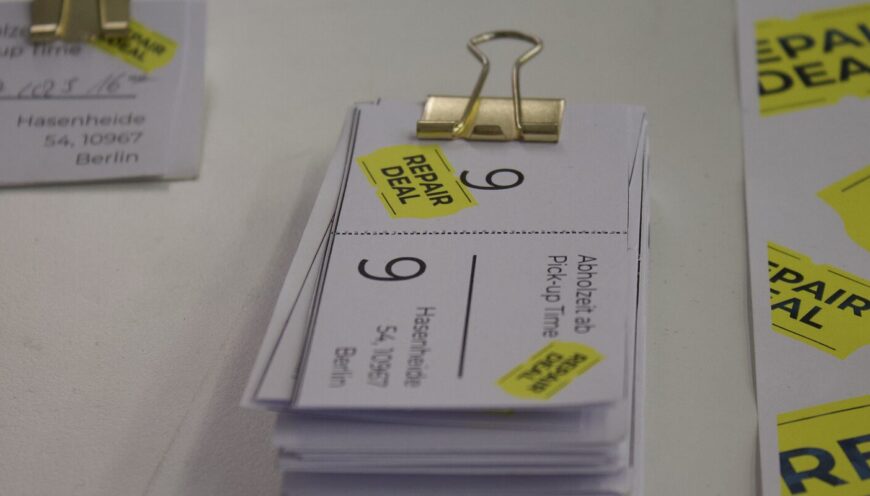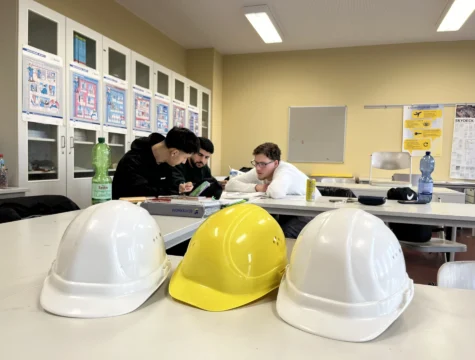The Repair Deal Pop-Up Week proved that Berliners are eager to engage in hands-on, creative, and community-based sustainability initiatives. With a diverse program, strong partnerships, and valuable learnings, the event laid a solid foundation for future repair-centered activities.
In July 2025, we as Circular Berlin, hosted the first-ever Repair Deal Pop-Up Week in Berlin-Kreuzberg. This Pop-Up event happened within the framework of the EU founded project SOLSTICE and marked the starting point for the Repair Deal launch.
Over the timeframe of four days, a diverse and engaging program that brought together Berliners around the themes of repair, sustainable fashion, and circular practices was offered. The event attracted a broad audience who participated in workshops, discussions, and creative exchange. Inviting people to explore the potential of repairing and revaluing textiles in new ways. From a welcome celebration and the live repair station, over a sustainable styling workshop and the visible mending workshop “Art on Broken Pieces,” as well as the offline podcast “Denim Dialogue”, visitors had several opportunities to be an active part of the event.
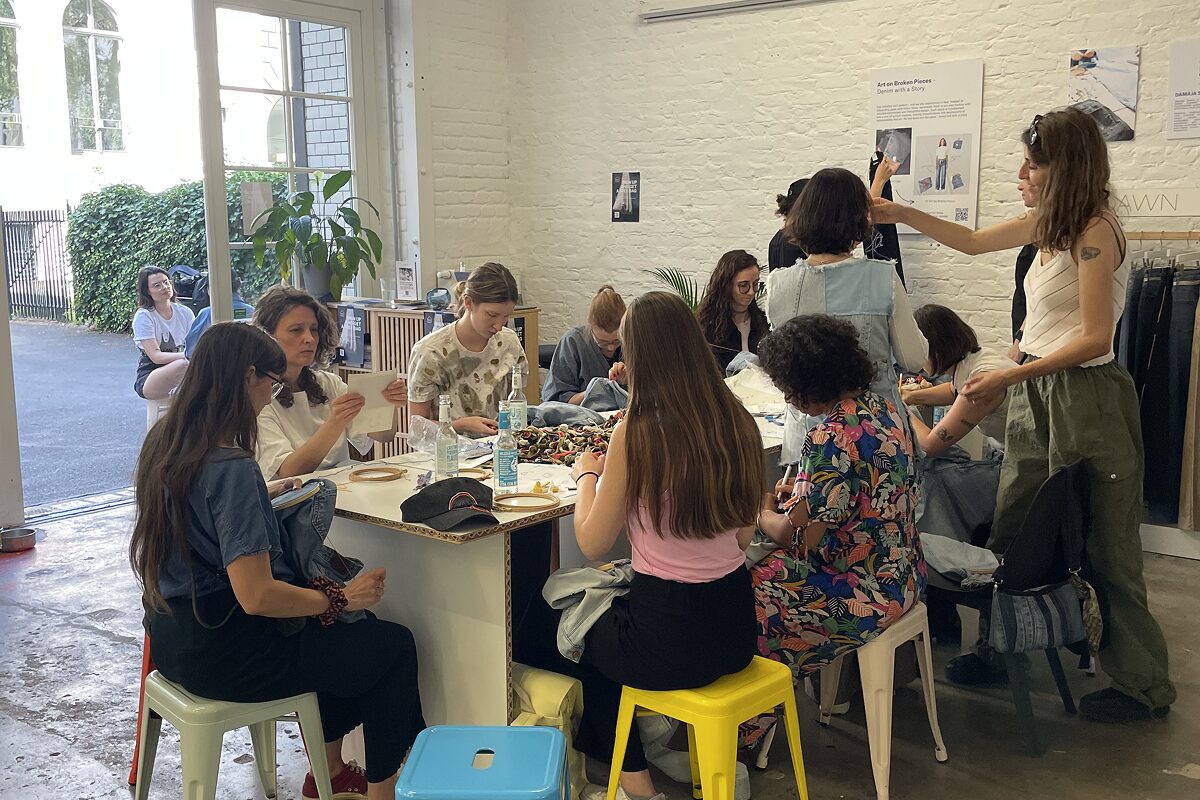
The Pop-Up Week was the result of close collaboration with various partners. The brand DAWN supported the initiative by providing the venue, the DAWN Haus, while we led the organization of the Repair Deal itself. Patricia Vogt from Blindhed, who worked as the lead expert at the repair station, and Stefanija Pejchinovska from Damaja, who facilitated the visible mending workshops, were a great support and contributed to the event through their great knowledge in terms of repair. The talk format “Denim Dialogue” was hosted by the artists and content creators Anna König and Monja Gentschow, who engaged in an open and personal conversation about denim, style, self-expression, and conscious consumption.
Over the course of the week, the Pop-Up welcomed approximately 150 visitors, with 29 participants actively taking part in the workshops. The majority of attendees were between 25 and 45 years old and identified as female. Most of the workshop participants joined to learn new repair techniques, and all of them stated that they planned to use the new learned skills again. In fact, 80 percent of the participants reported that the workshops influenced how they value repairing over replacing, while the remaining 20 percent already held a strong commitment towards repair. Although for many this was the first time attending a structured repair workshop, nevertheless half of the participants already had experience with repairing items at home.
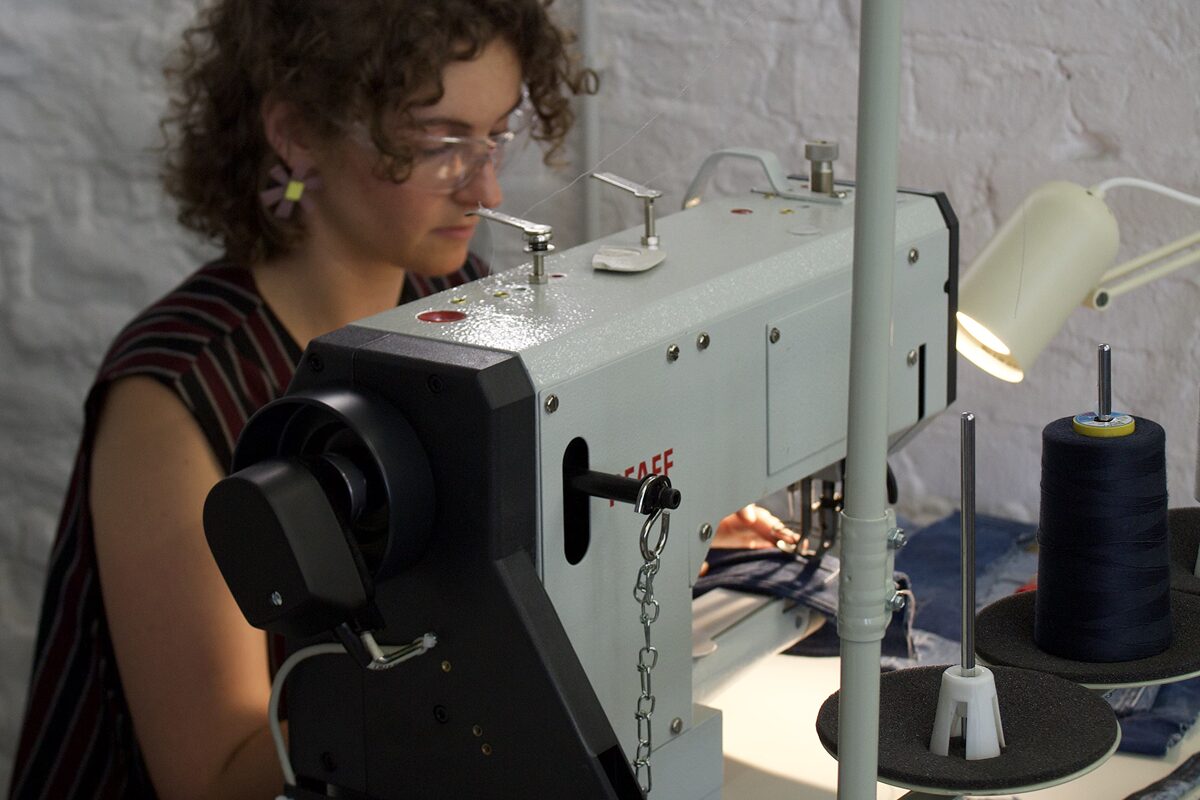
The heart of the Pop-Up was our repair station with a brand new industrial sewing machine. The live repair offer was well received, with around 20 repaired denim garments over the four days. Interestingly, the most frequent repairs differed from our expectations. While we anticipated typical issues such as zippers and crotch areas, the data showed that pockets, yokes, and hips were repaired the most. Many trousers had multiple areas of damage, and in several cases, owners were not even aware of all the issues their garments had.
All of the visitors were highly satisfied with the results, and the overall feedback was overwhelmingly positive. Around 75% of respondents rated the overall event 10 out of 10.
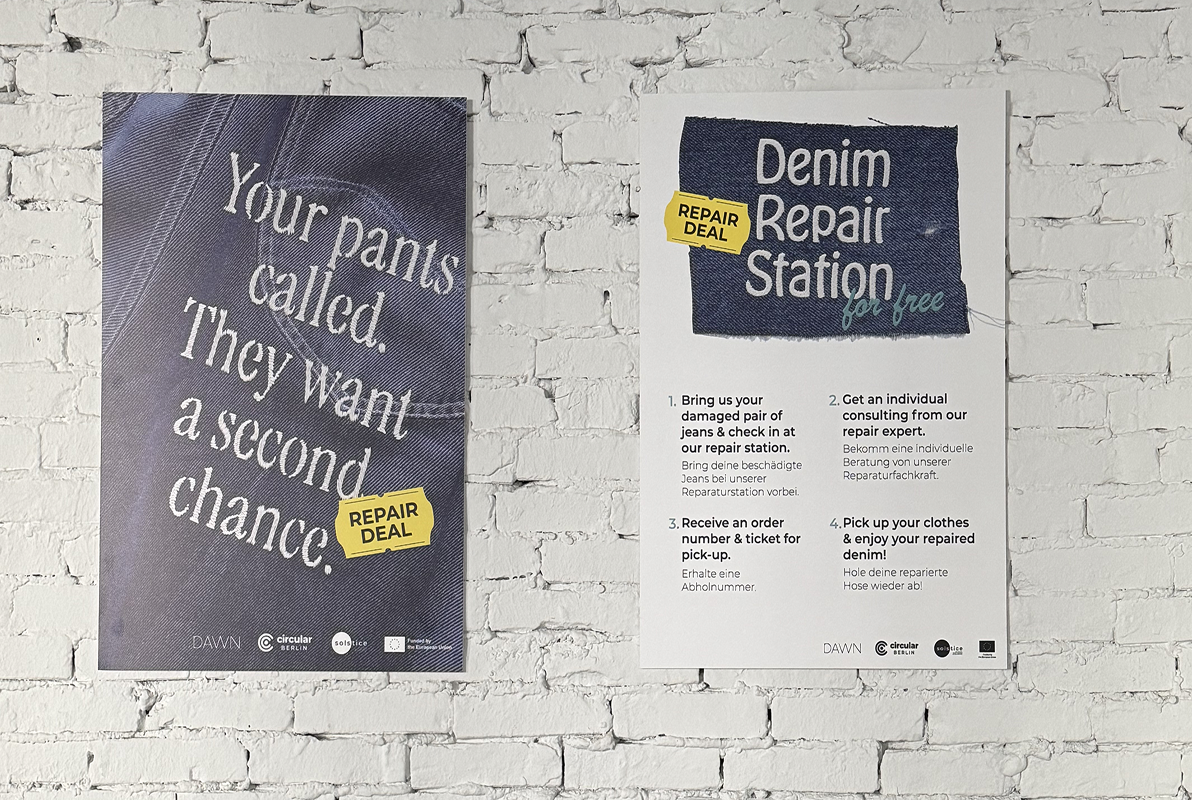
The week provided several important learnings for us. Timing proved to be crucial, as most visitors came on Friday afternoons and evenings, suggesting that future events should extend into weekends to better align with people’s schedules. We also noticed that hosting a live repair station in a public, interactive setting differs significantly from a standard repair business. Many visitors stayed to engage with the repair expert, which created a valuable exchange but also slowed down the repair process.
Overall, the Repair Deal Pop-Up Week was a successful starting point for fostering repair culture in Berlin. It demonstrated that sustainability, creativity, and community engagement can go hand in hand. The connections made and the insights gained will guide us in further developing the Repair Deal over the next 18 months. We are excited to continue this journey, driving circular practices in the textile sector and creating more spaces for people to engage with repair in meaningful ways.
Article by Xenia Schelper

